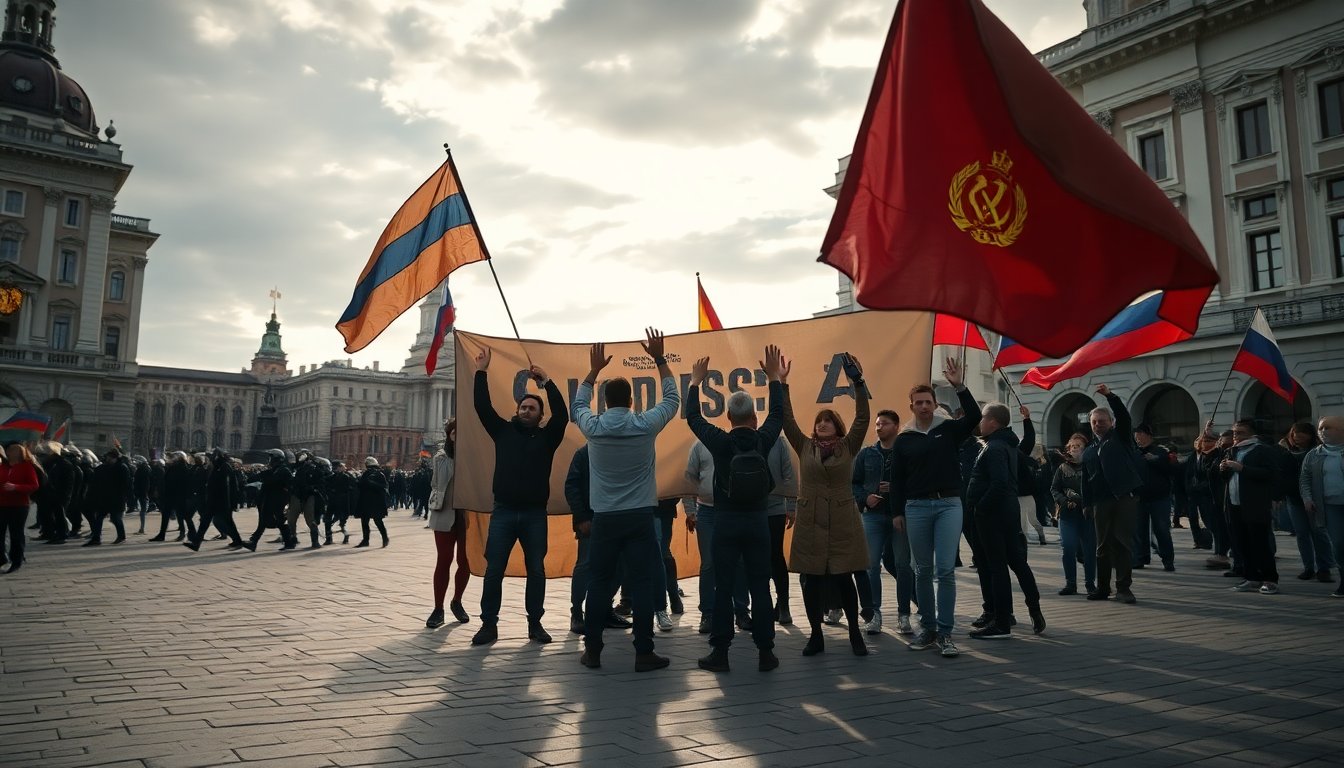Table of Contents
Recent developments in Russia have raised serious concerns regarding the treatment of dissidents and activists. The government is intensifying its actions against opposition figures, particularly through the expansion of terrorism charges. This clampdown extends to various organizations, including the Anti-Corruption Foundation (ACF), co-founded by prominent activist Alexey Navalny. As authorities label the ACF a terrorist organization, the implications for its operations and the safety of its members are profound.
On November 27, Russia’s Supreme Court is set to convene to deliberate a lawsuit initiated by the Prosecutor General’s Office. This lawsuit seeks to classify the ACF, which has been a thorn in the side of the Kremlin, as a terrorist organization. Leonid Volkov, a key figure in the foundation’s establishment, has voiced concerns that this designation could severely hinder the foundation’s ability to secure funding. Additionally, it may pave the way for increased hostility from Russian intelligence towards exiled activists.
Escalating repression and legal consequences
The situation is not isolated to Navalny’s group alone. In June, amendments to Russia’s criminal code broadened the definitions of who can be categorized as terrorists or extremists. Under these new regulations, individuals merely accused of discrediting the military or disseminating unapproved information about the ongoing conflict in Ukraine can find themselves listed as terrorists. This classification leads to a civic death, stripping individuals of access to essential services such as banking and employment.
Impact on civil society and dissent
The implications of these legal changes are staggering. The New York Times reported that the European Union’s current systems are inadequately prepared to address drone incursions near military installations, which have been attributed to Russian provocations. This context illustrates the broader environment of fear and uncertainty that characterizes the current political landscape in Russia.
In the energy sector, despite an executive order from President Putin in August permitting Exxon Mobil to reclaim its interests in the Sakhalin-1 project, the company remains committed to disengaging from Russian operations. Concurrently, Russia is planning to deliver over 750,000 barrels of sanctioned oil to Syria. The EU is also preparing to impose further sanctions targeting four companies involved in circumventing restrictions.
International relations and military tensions
In the realm of international military dynamics, tensions continue to escalate. The United States has reportedly lifted restrictions on Ukraine’s access to long-range missiles provided by Western allies. This development was met with swift denial from former President Trump, who labeled the information as fake news and distanced the U.S. from any involvement in Ukraine’s military operations.
As Ukraine pushes for more flexible terms on a loan that remains largely theoretical, the geopolitical climate remains precarious, with Europe engaged in simultaneous nuclear readiness drills. The atmosphere is charged with uncertainty as nations grapple with the implications of Russia’s aggressive posture and the potential for conflict escalation.
Women’s rights and freedom of expression
Aside from the targeting of political activists, there are alarming trends regarding women’s rights and artistic expression within Russia. Reports indicate setbacks in these areas, with authorities clamping down on various forms of cultural expression. The government’s tightening grip on dissenting voices poses a significant threat to the democratic fabric of society.
The landscape of dissent and activism in Russia is evolving rapidly, characterized by a noticeable increase in government repression. The implications for civil liberties, international relations, and social justice are profound, as the Kremlin continues to tighten its grip on power.


